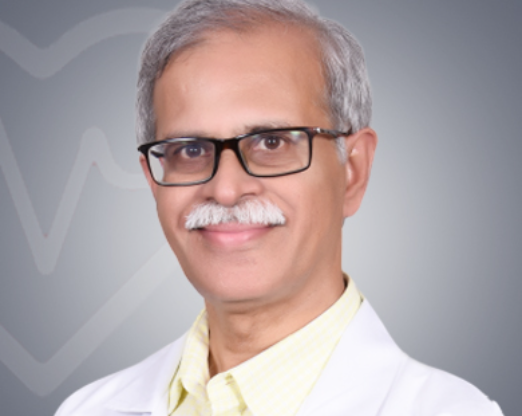Urethroplasty (Buccal Mucosa) Treatment in India
treatment
starting from
Introduction
Urethroplasty is a surgical procedure designed to repair and reconstruct the urethra, the tube responsible for transporting urine from the bladder to the outside of the body. It is a complex procedure often used to treat urethral strictures, which are narrowed sections of the urethra caused by scarring, inflammation, or trauma. In this blog, we will delve into the details of urethroplasty with buccal mucosa, a specialized technique that has emerged as a highly effective option for patients with complex urethral strictures. We will explore the procedure, its benefits, potential risks, recovery process, and frequently asked questions, providing you with a comprehensive understanding of this advanced treatment.
I. Understanding Urethral Stricture
The urethra plays a crucial role in the urinary system by allowing urine to flow from the bladder to the outside of the body. However, various factors can lead to the narrowing of the urethral passage, creating a condition known as urethral stricture. Some common causes of urethral strictures include:
1. Inflammation: Infections, such as sexually transmitted infections or chronic urinary tract infections, can cause inflammation and subsequent scarring, leading to urethral narrowing.
2. Trauma: Accidents, falls, or pelvic injuries can damage the urethra and trigger scar tissue formation.
3. Previous Urological Procedures: Surgical interventions involving the urethra, like catheterization or prostate surgery, can contribute to stricture development.
II. Urethroplasty with Buccal Mucosa Explained
Urethroplasty with buccal mucosa is a specialized surgical technique used to treat complex or recurrent urethral strictures. It involves using tissue from the lining of the mouth, known as buccal mucosa, as a graft to reconstruct the narrowed segment of the urethra. This procedure is highly favored by urologists due to its high success rates and ability to provide long-term relief to patients suffering from severe urinary difficulties.
III. The Procedure
1. Pre-operative Preparation:
Before undergoing urethroplasty, the patient undergoes a comprehensive evaluation by a urologist. This evaluation includes a detailed medical history review, physical examination, and imaging studies like urethrography or retrograde urethrography to assess the extent and location of the stricture. The surgeon will discuss the procedure, potential risks, and expected outcomes with the patient, addressing any concerns or questions.
2. Anesthesia:
Urethroplasty with buccal mucosa is typically performed under general anesthesia, ensuring the patient is completely unconscious and pain-free throughout the surgery.
3. Harvesting the Buccal Mucosa Graft:
During the first stage of the surgery, a small incision is made inside the cheek to access the buccal mucosa. The buccal mucosa is the moist lining of the mouth's inner cheek, which is rich in blood supply and has excellent healing properties. A small piece of buccal mucosa is carefully removed, and the incision site is closed with dissolvable sutures.
4. Repairing the Urethra:
With the buccal mucosa graft prepared, the surgeon proceeds to the second stage of the procedure, where the narrowed segment of the urethra is excised. This segment is removed to eliminate the scarred tissue causing the stricture. The buccal mucosa graft is then sutured into place, effectively widening the urethral passage and restoring its functionality.
5. Catheter Placement:
Following the urethroplasty, a catheter is inserted into the bladder through the urethra. The catheter serves multiple purposes: it allows urine drainage, prevents the newly reconstructed area from undergoing tension during the healing process, and maintains the shape of the newly created urethral passage.
IV. Benefits of Urethroplasty with Buccal Mucosa
1. High Success Rate:
Urethroplasty with buccal mucosa has consistently shown high success rates in treating complex urethral strictures. Studies have reported success rates ranging from 85% to 95%, making it one of the most effective surgical interventions available.
2. Long-lasting Results:
Unlike some temporary solutions, such as urethral dilatation or direct visual internal urethrotomy (DVIU), buccal mucosa urethroplasty offers a durable and long-lasting solution for urethral strictures. The graft's ability to adapt and integrate with the surrounding tissues contributes to its longevity.
3. Minimally Invasive Graft Harvesting:
The use of buccal mucosa as a graft material is advantageous because harvesting the graft is minimally invasive, resulting in minimal discomfort for the patient and reducing the risk of complications.
4. Reduced Risk of Graft Contracture:
Graft contracture is a common complication associated with other graft types used in urethroplasty. However, the buccal mucosa has a lower incidence of contracture, enhancing the overall success of the procedure.
V. Potential Risks and Complications
Although urethroplasty with buccal mucosa is considered a safe procedure, there are potential risks and complications to be aware of. These may include:
1. Infection: As with any surgical procedure, there is a risk of infection at the surgical site or within the urinary tract.
2. Graft Failure: In rare cases, the buccal mucosa graft may not integrate properly, leading to graft failure and the recurrence of urethral stricture.
3. Bleeding: Surgical procedures involve the risk of bleeding, but this is usually controlled during the surgery.
4. Urethral Fistula: A urethral fistula is an abnormal passage that can form between the urethra and surrounding tissues. Although uncommon, it can occur as a complication of urethroplasty.
5. Urinary Incontinence: In some cases, patients may experience temporary urinary incontinence after the procedure. This usually resolves as the body heals.
VI. Recovery and Post-operative Care
The recovery period following urethroplasty with buccal mucosa may vary from patient to patient but typically lasts several weeks. Here are some essential post-operative care tips:
1. Pain Management: Patients may experience mild to moderate discomfort after the surgery. Pain medications prescribed by the surgeon can help manage this discomfort.
2. Catheter Care: The catheter remains in place for a few weeks to allow the graft site to heal properly. Patients are advised to follow the surgeon's instructions for catheter care and maintenance.
3. Restricted Physical Activity: Patients are generally advised to avoid strenuous physical activities during the initial stages of recovery. It is essential to allow the body sufficient time to heal.
4. Follow-up Appointments: Regular follow-up appointments with the surgeon are crucial to monitor the healing process, remove the catheter when appropriate, and address any potential concerns.
Conclusion
Urethroplasty with buccal mucosa is an advanced surgical technique that has shown remarkable success in treating complex urethral strictures. With its high success rates and long-lasting results, this procedure offers renewed hope for patients struggling with urinary difficulties due to urethral strictures. While recovery may require patience and adherence to post-operative care instructions, the benefits outweigh the potential risks for many patients. If you or someone you know is experiencing urinary problems related to a urethral stricture, consult with a qualified urologist to explore the possibility of urethroplasty with buccal mucosa as a solution. Remember, informed decisions and expert medical guidance are essential to achieving optimal urinary health and overall well-being.
How It Works
Need help in organizing medical travel to India?









